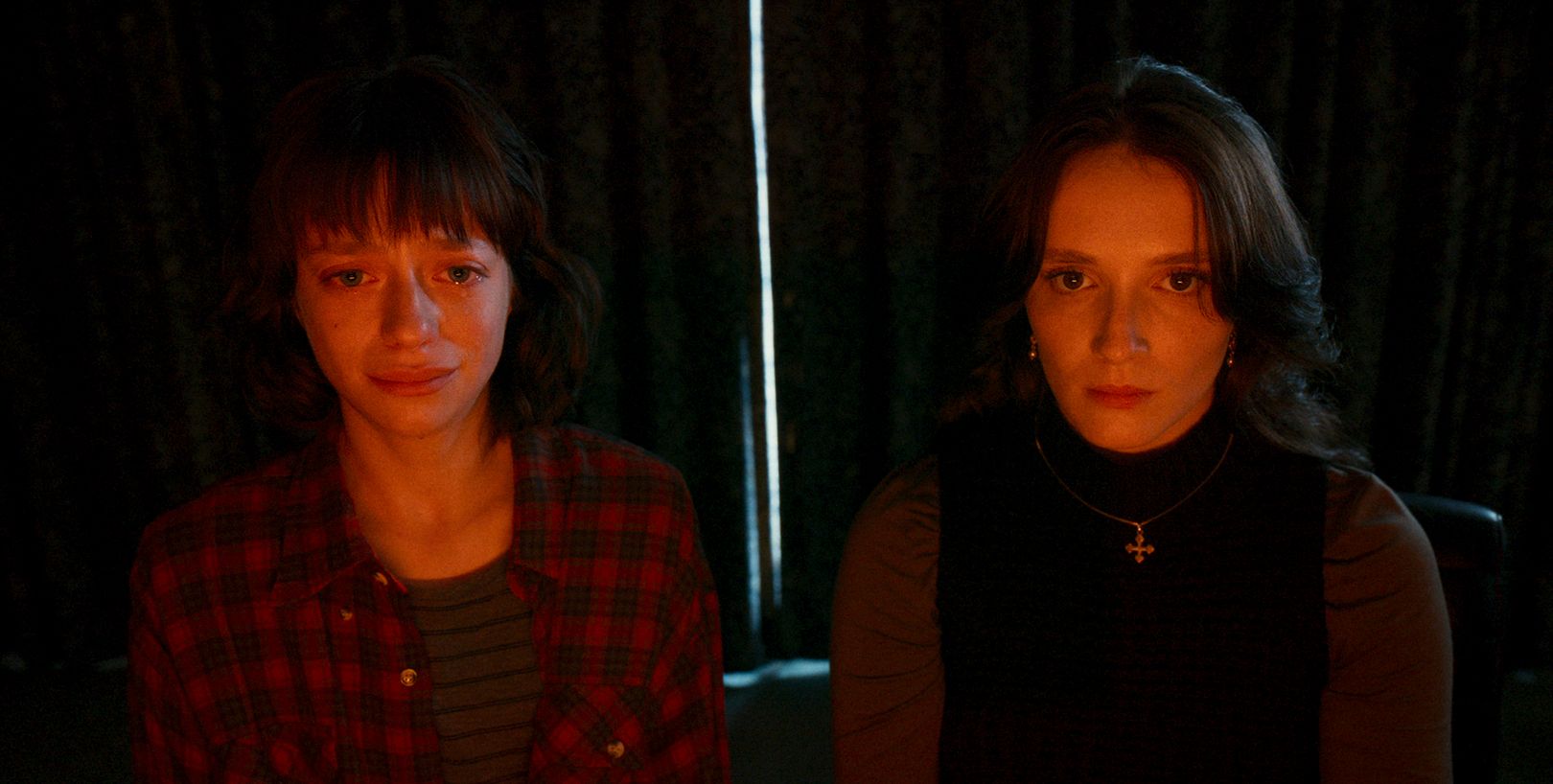Red Rooms is a 2023 crime thriller written and directed by Pascal Plante. The film follows the high-profile case of serial killer Ludovic Chevalier (Maxwell McCabe-Lokos), who has just gone to trial. Kelly-Anne (Juliette Gariépy), a model, becomes obsessed with the trial and the killer. When reality blurs with her morbid fantasies, she goes down a dark path to seek the final piece of the puzzle: the missing video of a murdered 13-year-old girl, to whom Kelly-Anne bears a disturbing resemblance.
Red Rooms, the latest offering from writer-director Pascal Plante, is a slow-burning thriller that delves into the murky world of true crime obsession, where reality and fantasy merge. Shot in Montreal, the film follows Kelly-Anne, a deeply enigmatic young woman whose obsession with the high-profile trial of serial killer Ludovic Chevalier propels her down a dark, disturbing path. The film weaves elements of crime, mystery, and psychological tension, exploring morbid fascinations in the digital age. Kelly-Anne is a character shrouded in mystery from the outset. Icy, withdrawn, and socially isolated, she becomes fixated on the trial of Chevalier, a man accused of heinous murders, including that of three 13-year-old girls whose final moments were allegedly captured on tape on a 'snuff video.' The missing video becomes Kelly-Anne's obsession, as she fixates on it as the "final piece" of the crime that could see Chevalier behind bars forever. As the film progresses, Kelly-Anne's motivations remain ambiguous, contributing to the film's eerie atmosphere and posing questions that are never fully resolved.
Much like Lisbeth Salander of The Girl with the Dragon Tattoo, Kelly-Anne portrays a formidable, independent 'lone wolf.' Plante presents her as a character with an almost emotionless exterior, who processes her dark fascinations with unsettling detachment. Gariépy's performance is mesmerizing, capturing Kelly-Anne's muted intensity with nuance, allowing viewers to peer into her fractured psyche. As we watch her spiral deeper into her obsession with the trial, her cold indifference to the horrors around her makes the film so unsettling.
The film's most compelling aspect lies in its portrayal of 'serial killer groupies' and crime fandoms, offering a critique of the culture surrounding these fixations. Plante taps into the zeitgeist of true crime, social media voyeurism, and the dark corners of the internet where criminal notoriety is fetishized. It is a world of dark web forums, digital currencies, and online anonymity, where those who feel disconnected from society find a perverse sense of belonging. Kelly-Anne's descent into this world is portrayed with chilling precision, as her obsession leads her to cross ethical lines in her quest to view the elusive murder video. This exploration of crime fandoms is handled with skill, though not without flaws. The film introduces Clementine (an underdeveloped character played by an actress whose performance lacks the emotional depth of her co-stars), a woman who is similarly obsessed with Chevalier but in a superficial way. While Kelly-Anne's motivations remain deliberately opaque, Clementine's seem frustratingly undercooked. The lack of insight into her character leaves a void, making her role in the narrative feel more like a prop than a fully realized figure. Her obsession with Ludovic never rises above a surface-level infatuation, a flaw that undercuts the film's otherwise thoughtful meditation on why people become enamored with 'monsters.'
In contrast, Elisabeth Locas delivers a powerful performance as Francine Beaulieu, the grieving mother of one of Chevalier's young victims. Locas's portrayal is raw, offering a much-needed emotional anchor in a film filled with chilling detachment. Her confrontation with the brutal reality of her child's death serves as a stark reminder of the human cost behind the lurid media spectacles and morose fascinations. Meanwhile, Natalie Tannous, as Maître Chedi, the Crown Prosecutor, adds gravitas and emotional passion to the courtroom scenes, playing her role with controlled intensity.
Red Rooms is a visually accomplished film, with Plante showcasing his directorial flair. Plante's use of surreal moments—such as sequences where the boundaries between Kelly-Anne's fantasies and reality blur—adds to the psychological tension of the film. However, this interplay between the real and the surreal isn't fully realized or achieved. At times, the film teeters on the edge of something profound but ultimately steps back, leaving the viewer grasping for meaning that never quite materializes.
Red Rooms is an atmospheric, well-made thriller that succeeds in parts but stumbles in others. It's an intriguing watch with strong performances from its lead actors, particularly Juliette Gariépy, and a dark, moody aesthetic that reflects the film's grim subject matter. Yet its muddled message and underdeveloped side characters hold it back from achieving the narrative coherence it aspires to. For all its potential, Red Rooms leaves one with the sense that it is a puzzle missing a few crucial pieces—fittingly, much like the mind of its enigmatic protagonist.

Watch Red Rooms
